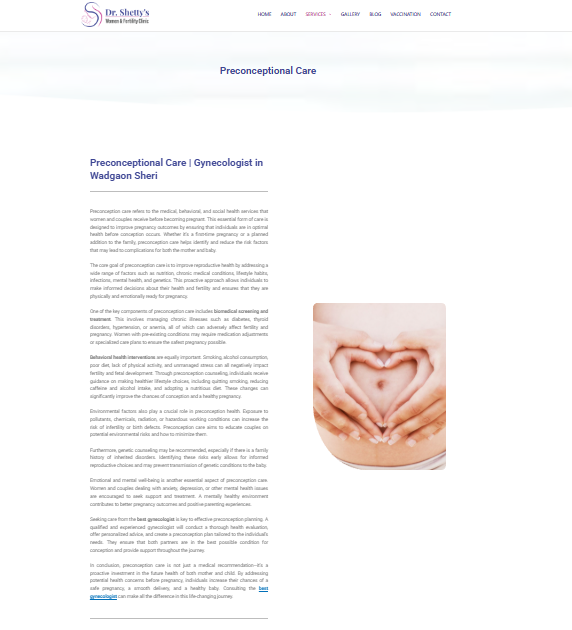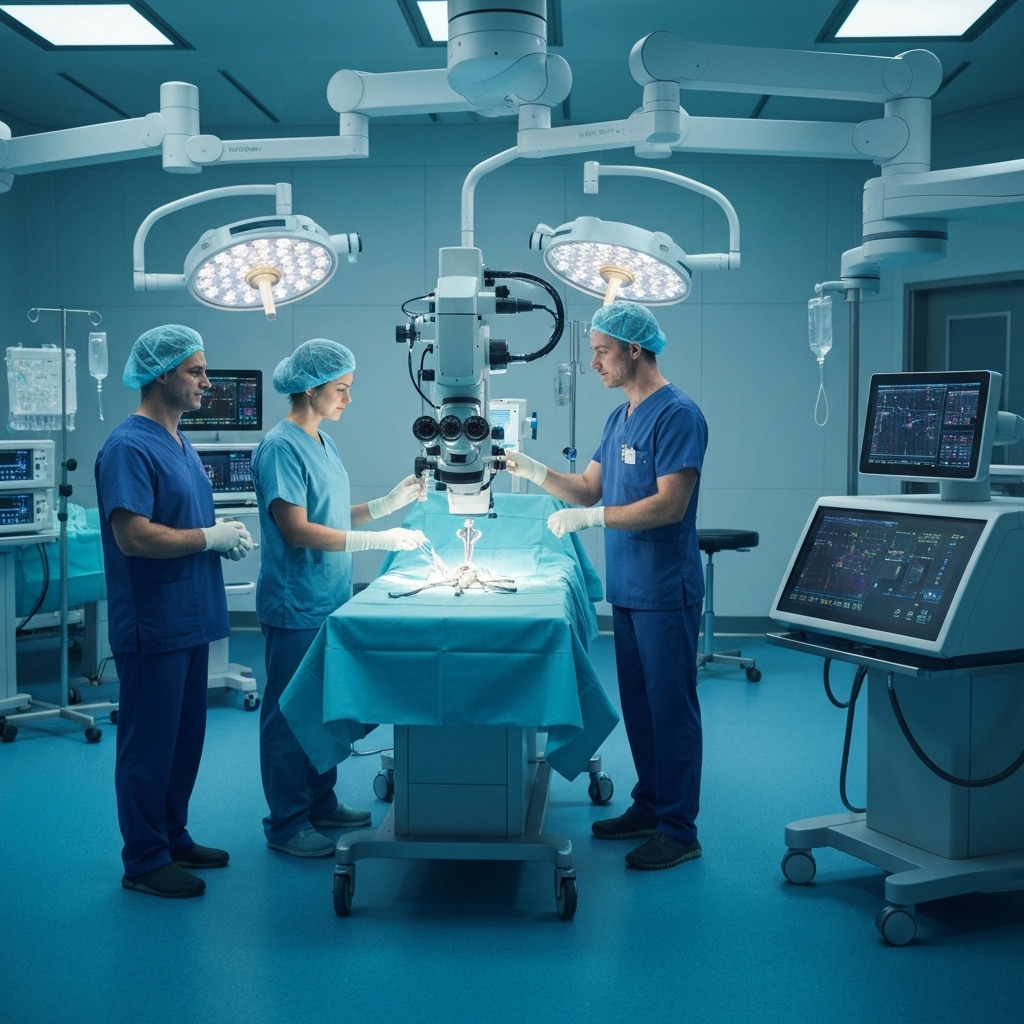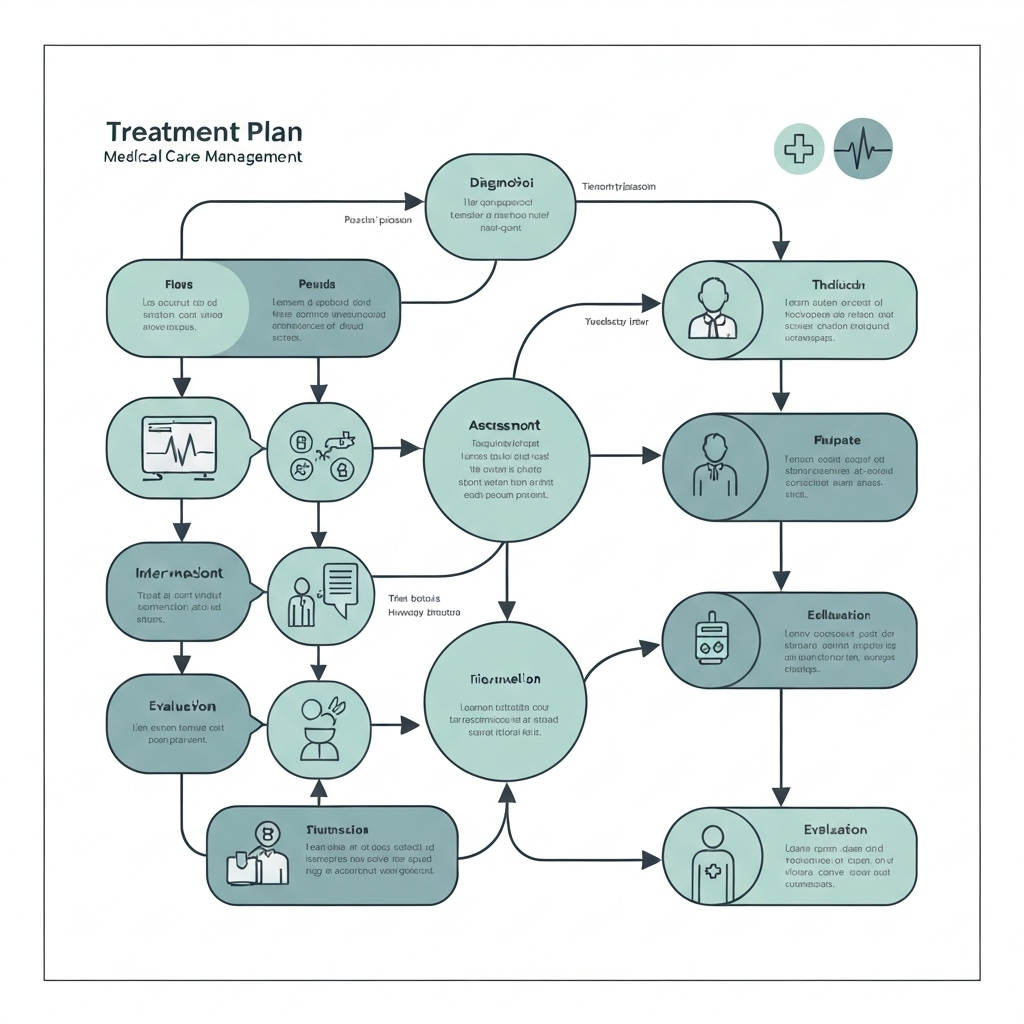Cancer Screening
Expert care and guidance from Dr. Meenal Warade, your trusted gynecologist.

About Cancer Screening
Cancer screening is a proactive healthcare approach designed to detect cancer or precancerous conditions before symptoms appear. Early detection significantly improves treatment outcomes and survival rates, as many cancers are more manageable when caught in their initial stages.
Screening involves various techniques including blood tests, imaging studies like mammography and ultrasounds, and physical examinations. The goal is to identify abnormal changes that could indicate cancer or conditions that might develop into cancer if left untreated. Regular screening is particularly important for cancers affecting women's reproductive health, including cervical, breast, and ovarian cancers.

Expert Consultation
Personalized care with comprehensive evaluation and treatment planning.

Advanced Technology
State-of-the-art equipment for accurate diagnosis and effective treatment.
Common Causes & Risk Factors
Several factors increase the risk of developing cancers that affect women's health. Age is a significant factor, with most cancers becoming more common as women get older. Family history and genetic mutations, such as BRCA1 and BRCA2, can substantially increase cancer risk.
Hormonal factors play a role in many women's cancers. Early menstruation, late menopause, never having children, or having children later in life can affect hormone exposure and cancer risk. Long-term use of hormone replacement therapy may also influence risk levels.
Lifestyle factors including smoking, excessive alcohol consumption, poor diet, lack of physical activity, and obesity can increase cancer risk. Environmental exposures to certain chemicals or radiation, as well as infections like HPV (human papillomavirus), also contribute to cancer development.

Lifestyle Factors
Understanding how daily habits and choices impact your health.

Genetic Factors
Family history and genetic predisposition considerations.
Prevention & Management
While not all cancers can be prevented, many risk factors can be modified through lifestyle changes and preventive measures. Maintaining a healthy weight, eating a balanced diet rich in fruits and vegetables, exercising regularly, and avoiding tobacco and excessive alcohol can significantly reduce cancer risk.
Vaccination against HPV can prevent cervical and other cancers. Regular screening according to recommended guidelines is crucial for early detection. This includes Pap smears for cervical cancer, mammograms for breast cancer, and other age-appropriate screenings.
For women with high genetic risk, additional preventive measures may be recommended, including more frequent screening, genetic counseling, or in some cases, preventive surgery. Regular consultations with healthcare providers help ensure appropriate screening schedules based on individual risk factors.

Regular Screening
Early detection through routine examinations and preventive care.

Treatment Planning
Customized treatment approaches tailored to individual needs.
Frequently Asked Questions
Ready to Get Started?
Schedule your consultation with Dr. Meenal Warade today for personalized care and expert guidance.